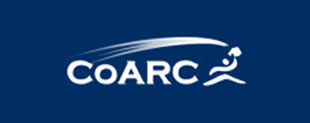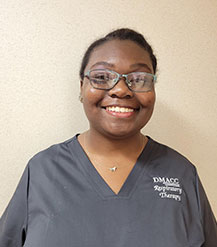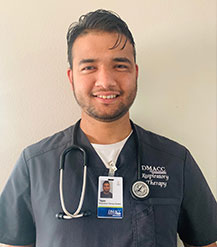Respiratory Therapy Program Details
Questions? Contact Us!
Amy Boeckmann, MPA, BS, RRT
Program Chair
ajboeckmann@dmacc.edu
515-964-6378
Need Help Getting Started?
DMACC
Admissions Office
admissions@dmacc.edu
515-965-7337
With a DMACC Respiratory Therapy Degree, you can make a significant difference in the lives of individuals that have difficulty breathing caused by trauma, asthma and chronic obstructive pulmonary disease (COPD) among other conditions.
The DMACC Respiratory Therapy program qualifies for the last-dollar scholarship. The program accepts new students each fall semester and requires 5 semesters including a variety of learning environments such as classroom, laboratory, simulation and 780 clinic hours. Students will gain experience in a variation of clinic opportunities preparing students to fill the high demand. Clinical sites include UnityPoint Des Moines, MercyOne, VA, Mary Greeley, Broadlawns and more!
Graduates are eligible to take the national credentialing examinations for licensure, which is required to practice in any state. Students average 2-3 courses each semester through the program and most program courses are scheduled in the mornings.
- Meet with Program Chair of the Respiratory Therapy program
- Submit to Admissions office evidence of high school graduation or GED completion prior to enrollment.
- Submit to Admissions office of successful completion in Loading...MAT 156
- Submit to Admissions office evidence of grade "C" or above in both Loading...BIO 168 and Loading...BIO 173 , or Loading...BIO 164
- Submit to Admissions office evidence of successful completion in Loading...ENG 105.
- Submit to the Admissions office evidence of successful completion of Loading...SDV 108 or Loading...SDV 109
- Must have a minimum cumulative GPA of 2.5 or higher in required program entry requirement courses and cannot be on Academic Probation. All prerequisite courses must be completed with a grade of “C” or better.
What is a Respiratory Therapist?
- Healthcare worker
- Treat people with breathing or cardiopulmonary problems
- Assess and evaluate patients then treat based on consultation with a physician
Respiratory Therapy vs. Nursing
- Specialized in heart and lungs
- Daily variety in assignments and patients
- No wait list for program entry
- No entry exam for program entry
- Utilization of complex lifesaving equipment and technology
Duties/Responsibilities
- Aerosol Therapy
- Suctioning
- Mechanical Ventilation
- Arterial Blood Gases
- Intubation/Extubation
- ECG
- Bronchoscopy
- ECLS (ECMO)
- Pulmonary Function Testing
- Mucus Clearance
- Polysomnography
- CPR
- Education


